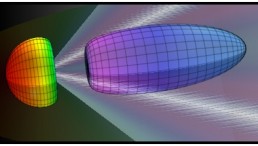It is challenging to make entertainment accessible to as many people as possible, especially for video games which rely on visuals. The International Game Developers Association estimates that around 10 to 20% of people do not play video games because of disability.
The concept of making a video game for visually impaired people may sound unrealistic and unusual, but the idea is being accepted by game designers including West Aussie indie game developer Brian Fairbanks. Brian's rescue dog adventure game called Lost and Hound is accessible for visually impaired people.
It features the dog Biscuit, who is created from real-life search and rescue dog situations, such as sniffing out survivors in rubles after earthquakes and collapsed mines. The player follows an audio trail that reflects a dog's powerful sense of hearing to complete the rescue mission. Even a scent trail is represented through a low hum.
Brian's goal was to create a video game that was accessible to the blind gaming community but at the same time visually appealing enough to entertain the rest of the gaming community.
"[Vision impaired people] are the only segment of society that we as game developers have done such a terrible job at trying to meet their needs," Brian says.
"They've literally gone off and made their own genre called audio games," Brian says accessibility is often an afterthought at the end of the production process. "You don't make a game and then say what can I do for people with cognitive impairment, hearing impairment, visual impairment?" he says. "You need to start [with accessibility in mind] at the very beginning."
Lost and Hound looks like a regular video game, but if you use your headphones, you can complete the levels by using the audio alone. Brian says that visually impaired players are better at the game than sighted players. "Sighted people don't use sound to inform their decisions, it's more reactionary ... but blind people do it all the time so they're much better at the game," he says. "When you think about how much information can be transmitted through sound alone, the breadth of what you can do is incredible."
Lost and Hound's unique gameplay earned Brian a travel grant from the WA Government as part of a new International Access Pass program. The program helps connect WA game developers with key players in the industry and covers their travel expenses to major games industry conferences.
Brian used his International Access Pass to show Lost and Hound at the PAX East gaming festival in Boston, Massachusetts, in March. Lost and Hound gained recognition at the expo that lasted for four days and there were around 200 players who tried it.












![Sat-Nav in Space: Best Route Between Two Worlds Calculated Using 'Knot Theory' [Study]](https://1721181113.rsc.cdn77.org/data/thumbs/full/53194/258/146/50/40/sat-nav-in-space-best-route-between-two-worlds-calculated-using-knot-theory-study.png)

